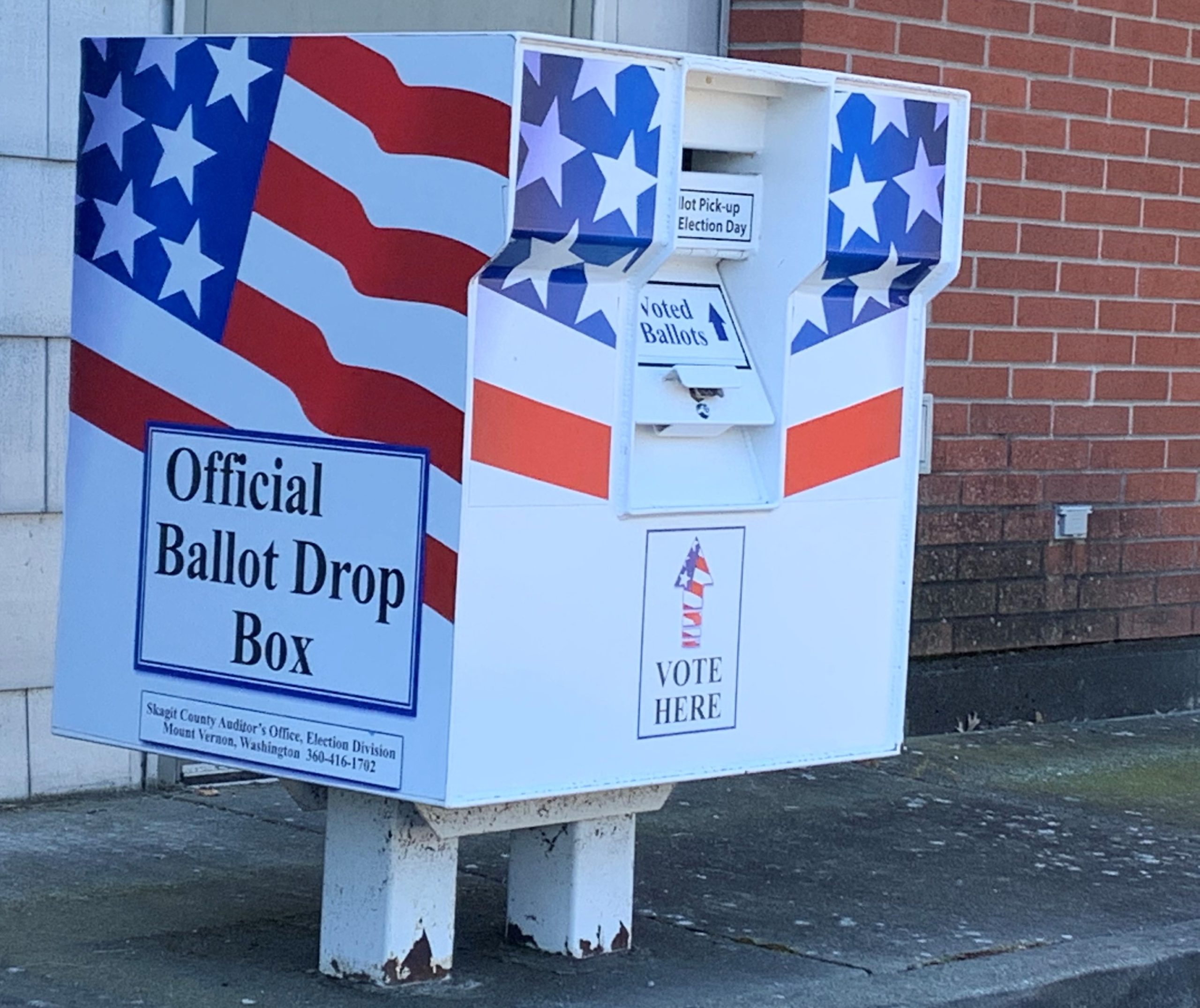In 2016, Pennsylvania’s twenty Electoral College votes hung on the margin of just 44,292 votes. So, this presidential election season, plagued by coronavirus complications, how is this key battleground state prepared for safe elections? We gave Pennsylvania a C- grade for mail voting access, but Pennsylvania elections officials are hustling to improve, including one simple fix that could bump up their grade and protect voters this November: Adding secure drop boxes.
To help each state prepare for increased absentee voting during the COVID-19 pandemic, Sightline compiled top recommendations for swiftly ramping up Vote By Mail in each state. High on the list for Pennsylvania is that the state provide additional secure drop boxes for voters to submit their ballots. Drop boxes are used in long-time all-mail election states like Oregon and Washington, where voters can simply swing by a convenient, official box—usually near a library or other community building—while running errands, and know that their ballots will be securely delivered to local election officials.
Boosting the number of drop boxes is all the more crucial as concern and confusion swirl around the US Postal Service.

Boosting the number of drop boxes is all the more crucial as concern and confusion swirl around the US Postal Service (USPS). US Postmaster General Louis DeJoy had started removing post office boxes in some states, limiting voters’ options for returning ballots by mail. (DeJoy has since said he’ll suspend those changes until after the November election.) But in this context, drop boxes could be a lifeline for voters this year.
But that lifeline could also be yanked away.
In its June 2 primary, some Pennsylvania counties offered more drop-off locations for mail-in ballots, totaling about forty additional drop boxes on top of its primary election offices and polling places. While this is far fewer than the best practices recommendation of one drop box for every 10,000 voters, it is better than none. By November, election officials in Philadelphia and some surrounding suburbs hope to offer sites where any of the state’s 8.6 million registered voters can request and submit a mail ballot in-person weeks before the election. Philadelphia officials said they want to offer seventeen early-voting sites, according to The Philadelphia Inquirer.
However, in late June, Donald Trump and the Republican National Committee (RNC) sued Pennsylvania’s top election official, Kathy Boockvar, and sixty-seven county election boards to stop the state from using ballot boxes, early-voting sites, and other mobile collection sites. Their argument was that voters should only be allowed to return their ballots via the Postal Service or at county’s central office. In response, the Pennsylvania Democratic Party filed another action against Boockvar in mid-July to get a declaratory judgment stating that election rules allow for the collection of absentee ballots in locations other than the official election office.
An evidentiary hearing in the US District Court for the Western District of Pennsylvania is scheduled for September 22, but by mid-September the state will begin mailing ballots to voters who requested them. Last year, Pennsylvania eliminated requirements to list an excuse in order to receive a mail-in ballot.
Now, Boockvar is asking the state Supreme Court to intervene in a case that immediately impacts Pennsylvanians’ voting rights, with the general election fast approaching.
“These issues are unquestionably of immediate public importance,” wrote J. Bart DeLone, Chief Deputy Attorney General. “Both voters and election officials need clarity on these critical election issues as soon as possible.”
Boockvar’s appeal to the state’s highest court comes against the backdrop of threats to defund the US Postal Service. President Donald Trump has made several remarks that seem to indicate he opposes additional funding for both the Postal Service and election security measures because of his opposition to mail-in voting. Twitter has placed a “public interest notice” on at least one of the president’s tweets about voting by mail that, upon review, was deemed misleading.
Last month, Boockvar received notice from the USPS that the state’s deadlines to register for mail-in ballots interfered with their expected delivery times, and that those ballots may not get counted in time. The USPS told Boockvar that to ensure their votes get counted, voters should put their ballots in the mail by October 27—the state’s deadline for voters to request a mail-in ballot.
As a response, Pennsylvania officials are asking the federal court to allow mail-in ballots that are postmarked by 8 PM on November 3, Election Day, and received within three days, to be counted. If a drop box is available, voters can get their ballots into the drop box on Election Day and rest assured they will be processed. However, if the RNC prevails in court, voters will have to get their ballots in the mail much earlier, or risk being disenfranchised.
Pennsylvania is a high-stakes case study demonstrating the vital link between mail service and the right to vote. This year in Pennsylvania and states across the US, drop boxes become more critical than ever in assuring every voter can have their voice heard.
Sightline is a 501(c)3 non-profit organization and does not support, endorse, or oppose any candidate or political party.
Thank you to Nisha Balaram for editing this article.

